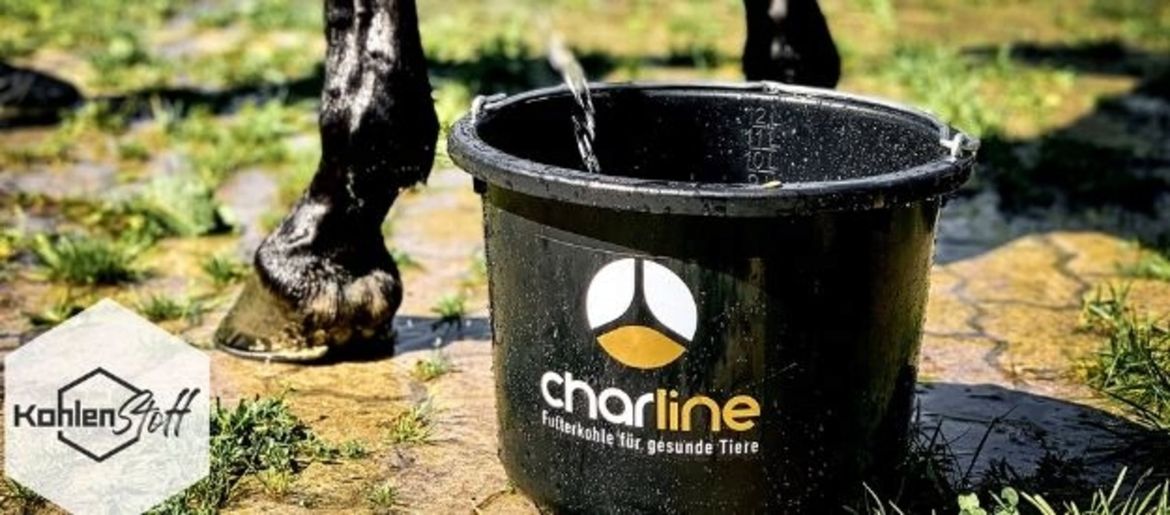HOT HOT HOT - Sweaty times in the horse stable
Summertime and the living is easy? Not necessarily for horse owners and riders, because with the rising temperatures in July comes the uncertainty of how to deal with the summer heat and the horses' need for fluids. Find out what it takes to stay really cool here.
First of all, the obvious applies: A healthy horse is extremely adaptable and can basically be worked and trained in the warm summer months. A posture that is as natural as possible, a lot of free movement and a basic level of fitness contribute to increased adaptability. The horse's comfortable temperature is generally between -7 and 25 degrees Celsius - provided that the air is dry. However, our four-legged friends can reach their limits, especially in humid, hot conditions above 30 degrees. For everyday life, rethinking is the order of the day. Training should take place in the cooler morning or late evening hours and the sunny outdoor area should be swapped for shady forest paths or the cool riding hall. The same applies to grazing, especially if there is little or no shade in the form of shelters or trees, horses should be in the paddock overnight and in the well-ventilated, shady stable during the day. Most horses get used to the changed rhythm quickly and enjoy the cool night hours in the field, when they are usually much less plagued by flies, mosquitoes and horseflies.
Whether indoors or outdoors - the most important elixir in summer is free and unrationed access to clean, fresh water. On extremely hot days, horses can drink between 30-60 litres, depending on their constitution and work; High-performance horses even more so on competition days. If you consider that around two thirds of a horse's total weight comes from water in cells, blood, lymph and intestines, this explains the importance of fluid balance. A horse can go several days without food and the organism still functions. However, if the water content is reduced by only a tenth, essential body functions are restricted.
One of the most important reactions to the heating of the horse's body is sweating, a kind of protection against overheating due to the evaporation of the water contained in the sweat. As a rule, the better the horse's training condition, the greater its ability to sweat - due to the additional formation of sweat glands. With sustained high performance, horses easily lose up to 15 litres of fluid per hour. And since, in contrast to humans, the horse's sweat is hypertonic, i.e. contains a larger amount of sodium, potassium and magnesium ions, these lost ions - better known as electrolytes - have to be compensated. Additional preparations for this purpose are available for horses in powder, pellet or solution form. By the way: The "white foam" when your horse sweats is usually nothing to worry about. It only arises from friction with items of equipment or other areas of the body. However, if your horse sweats with little exertion and when the temperature is cool, you should take a closer look: Is it perhaps in pain or overwhelmed? You should also take a close look at the food - certain grains can lead to increased sweating and "foaming".
After work, most horses enjoy a shower, which not only washes away the sweat, but also provides additional cooling. However, the water should not be ice cold and, especially in the case of strongly heated horses, should only start slowly on the front and rear legs. For better thermoregulation, your horse can then be run or ridden dry in step. If you put it in the box afterwards, it is worth watching for a few minutes whether it starts to sweat again and to breathe faster - the so-called post-sweating is a sign that the organism is not yet working at normal temperature again and you are should continue to lead dry - or ride!
We have a little tip for the picky drinkers who are hesitant to go to the strange water when they are out and about: A shot of apple juice in the water bucket will convince most horses and bring additional minerals to the horse. If that doesn't help either, it's worth taking local water in canisters or special water bags with you when you travel. Just like us humans, some horses taste the difference!
Text by Anne Lorf (CharLine GmbH)
Latest reviews
-
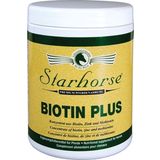 4.8 (4)
4.8 (4)Starhorse Biotin Plus, 550 g
-10%- Biotin, Zinc & Methionine
- Slightly sweet taste
- With vanilla flavour
€ 26,95 € 29,99 (€ 49,00 / kg)Delivery by April 17
-
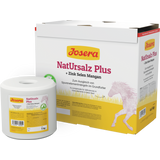 4.0 (1)
4.0 (1)Josera NatUrsalz Plus - Horse Lick, 5 kg
-10%- Can be used in organic farming
- Salt lick with zinc, selenium & manganese
- High acceptance
€ 6,74 € 7,49 (€ 1,35 / kg)Delivery by April 17
-
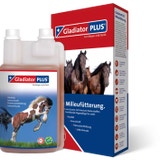 4.6 (71)
4.6 (71)GladiatorPLUS Gladiator Plus Horse, 1.000 ml
- Excellent ingredients
- High bioavailability
- Sugar-free
€ 91,99 (€ 91,99 / l)Delivery by April 17
-
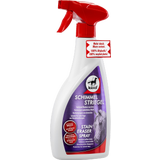 3.7 (3)
3.7 (3)leovet Milton White "Grey Shimmer", 550 ml
-10%- Fights discolouration
- Brilliant white effect
- Made with natural proteins
€ 15,25 € 16,99 (€ 27,73 / l)Delivery by April 17
